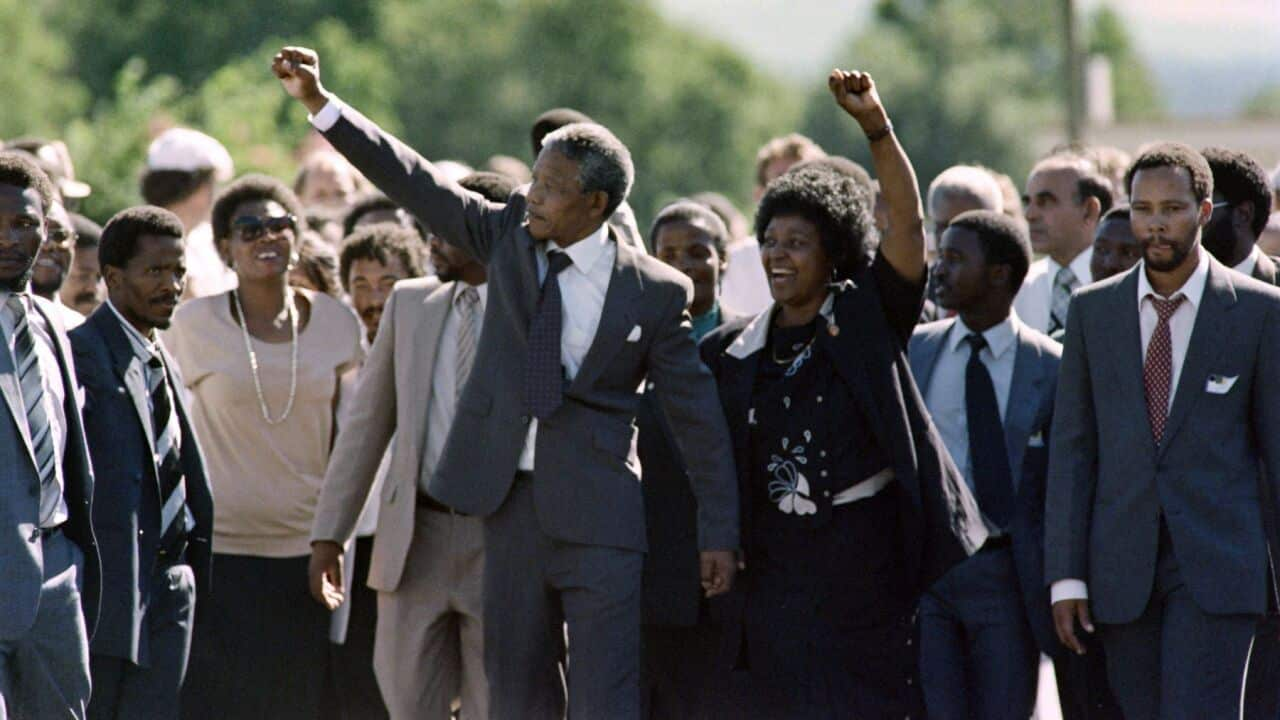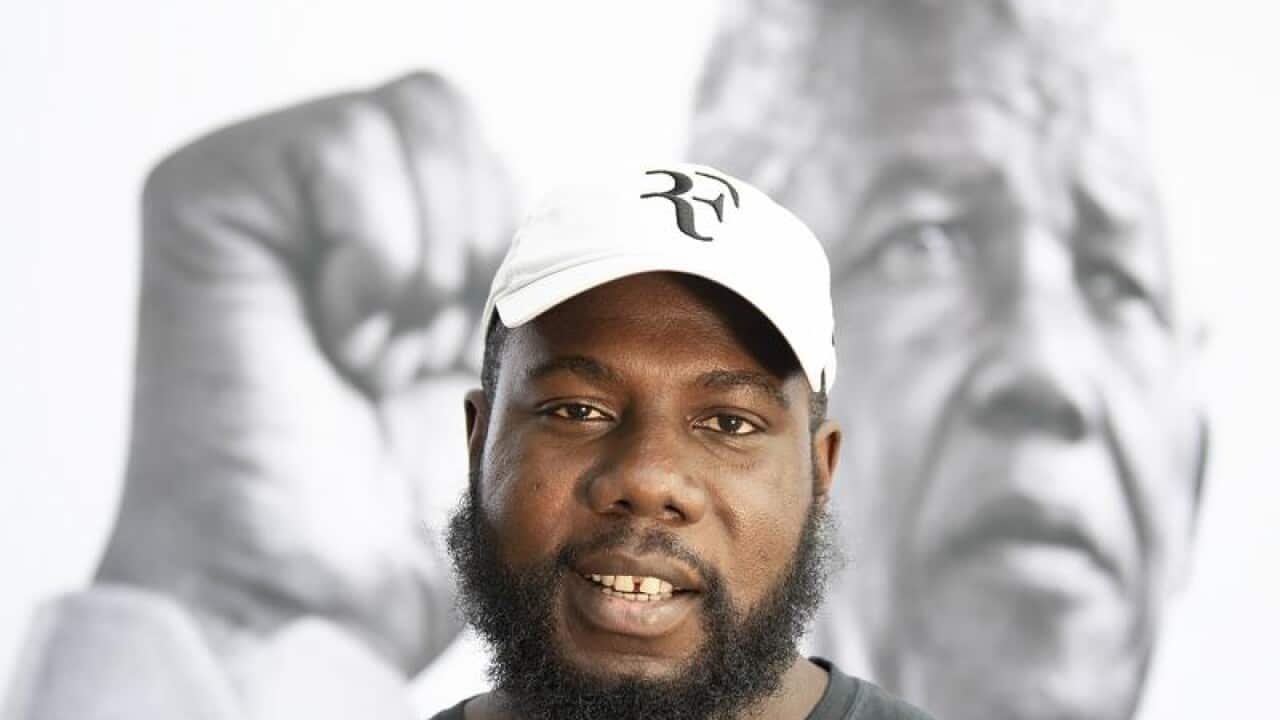South African President Cyril Ramaphosa on Tuesday marked the 30th anniversary of Nelson Mandela's release from jail with an address from the spot where the anti-apartheid icon made his first speech as an awestruck Mr Ramaphosa held the microphone for him.
On February 11, 1990, Mr Mandela spoke from the Cape Town city hall to euphoric crowds, hours after his release from prison where he had spent more than 27 years.
It was Mr Mandela's first major speech as a free man and a key moment in South Africa's rebirth as white-minority rule crumbled.

South African President Cyril Ramaphosa, left, next to a sculpture of former President Nelson Mandela. Source: AP
"The day Mandela was released was a day we all knew that apartheid was dead and finished. It was a moment where the world literally stood still," Mr Ramaphosa told a thousand people gathered in front of the city hall.
"He stood here to speak and I held the microphone," said Mr Ramaphosa, speaking in front of a giant statue of Nelson Mandela.
"Nothing could describe that brief second when that microphone crackled," he said.
"That was the moment everyone was waiting for, Nelson Mandela's first words. And he uttered his first words 'I stand before you not as a prophet but as a servant of the people'".
"It will forever be remembered as one of the most memorable days in the history of the world," Mr Ramaphosa said.
'Freed under pressure'
Nelson Mandela was sentenced to jail for life in 1964 for alleged sabotage.
He served 27 years, with stays on the notorious Robben Island off Cape Town, then in the Pollsmoor and Victor Verster prisons.
His release came days after the country's last apartheid leader F.W. de Klerk lifted the ban on the African National Congress and other liberation movements.
After 27 years, six months and six days in captivity, Mr Mandela, then 71, walked free from his prison in Paarl where hundreds of ANC supporters had gathered to greet him, waving the party's black, green and gold flag.
Mr Mandela and this then-wife Winnie gave clenched-fist salutes to the cheering crowds as they made their way to a car and drove off in a police-escorted motorcade.
Mr Ramaphosa, who was 37 at the time of Mr Mandela's release, said the apartheid government came under immense pressure to free Mr Mandela.

Making history: Mandela addressing the United Nations in 1990, shortly after being released from prison. Source: UN / P Sudhakaran
"It was not out of the kindness of F.W. de Klerk... It was not because he felt sorry for Mandela or that he was a kind-hearted man."
President Ramaphosa, who delivers his state of the nation address on Thursday, admitted the country was facing "many challenges", including "high levels of unemployment,... the shameful killing of woman and girls, the stench of corruption."
This threatens to reverse our democratic gains," he said.
Lebona Motlatla, who listened to Mr Ramaphosa's speech, said Mr Mandela would not have been happy with the state of South Africa now.
"What Mandela meant with freedom for all, was food on the table and work for all," he told AFP.
"I think (Mandela would be) disappointed because there is a lot of corruption".
Mbuyi Nase was just a teenager in the Eastern Cape when Mr Mandela gave his historic speech. He remembers hearing the news from his school principal about Mr Mandela’s release.
"There was a vibe in our township. We experienced a lot of celebrations, " he said.
Nelson Mandela's release was followed by years of tension-packed negotiations aimed at transferring power from whites to the nation's majority black population.
He would go on to become the country's first democratically elected president in 1994.
He retired after one five-year term and died on December 6, 2013 aged 95.
Fellow Nobel Peace laureate Leymah Gbowee from Liberia also spoke as part of the celebrations. She castigated African leaders for their "insensitive attitude.
Mr Mandela's "walk out of prison was to ensure Africa’s release from the prison of our minds. We no longer have to be held hostage to greed, poverty, and corruption," she said.



